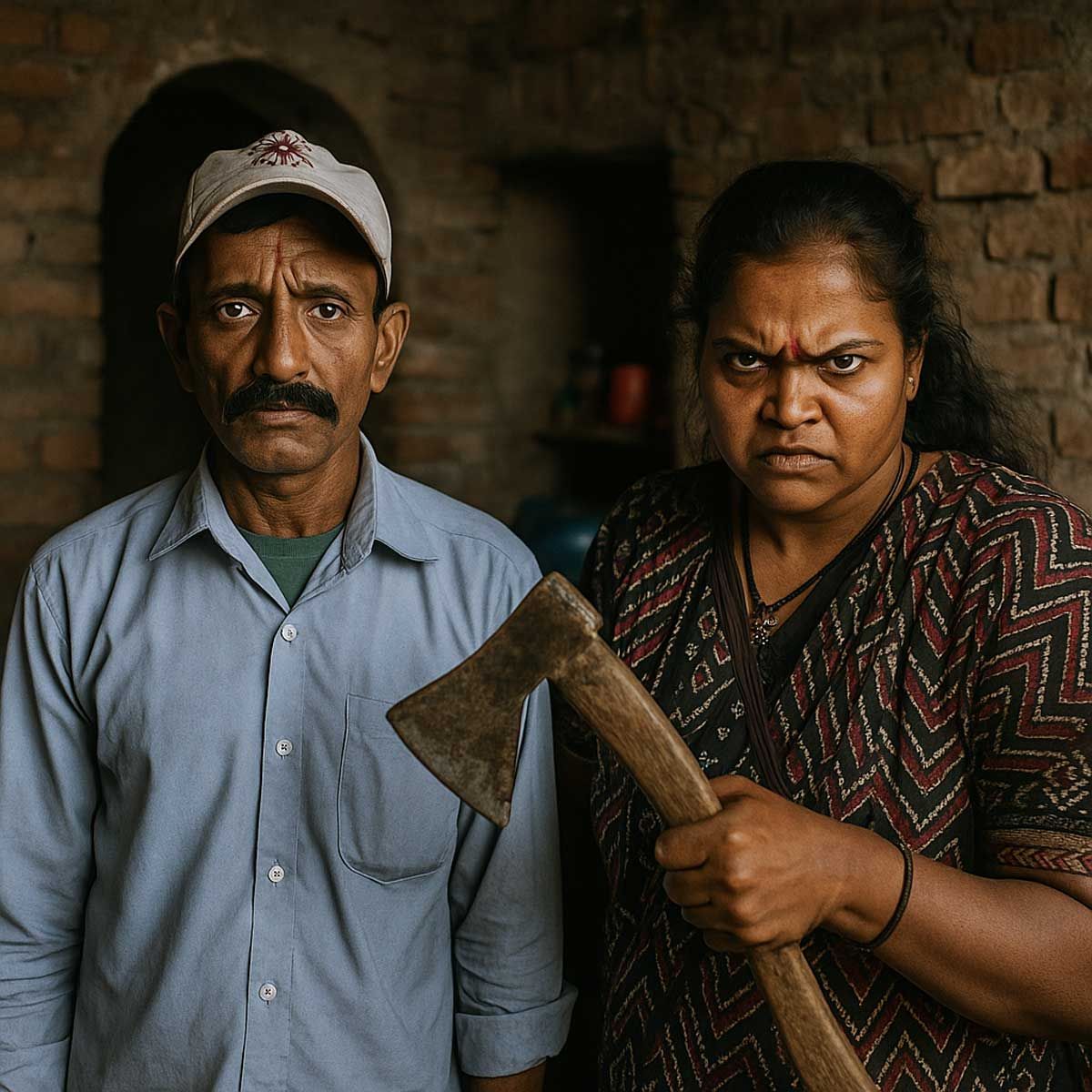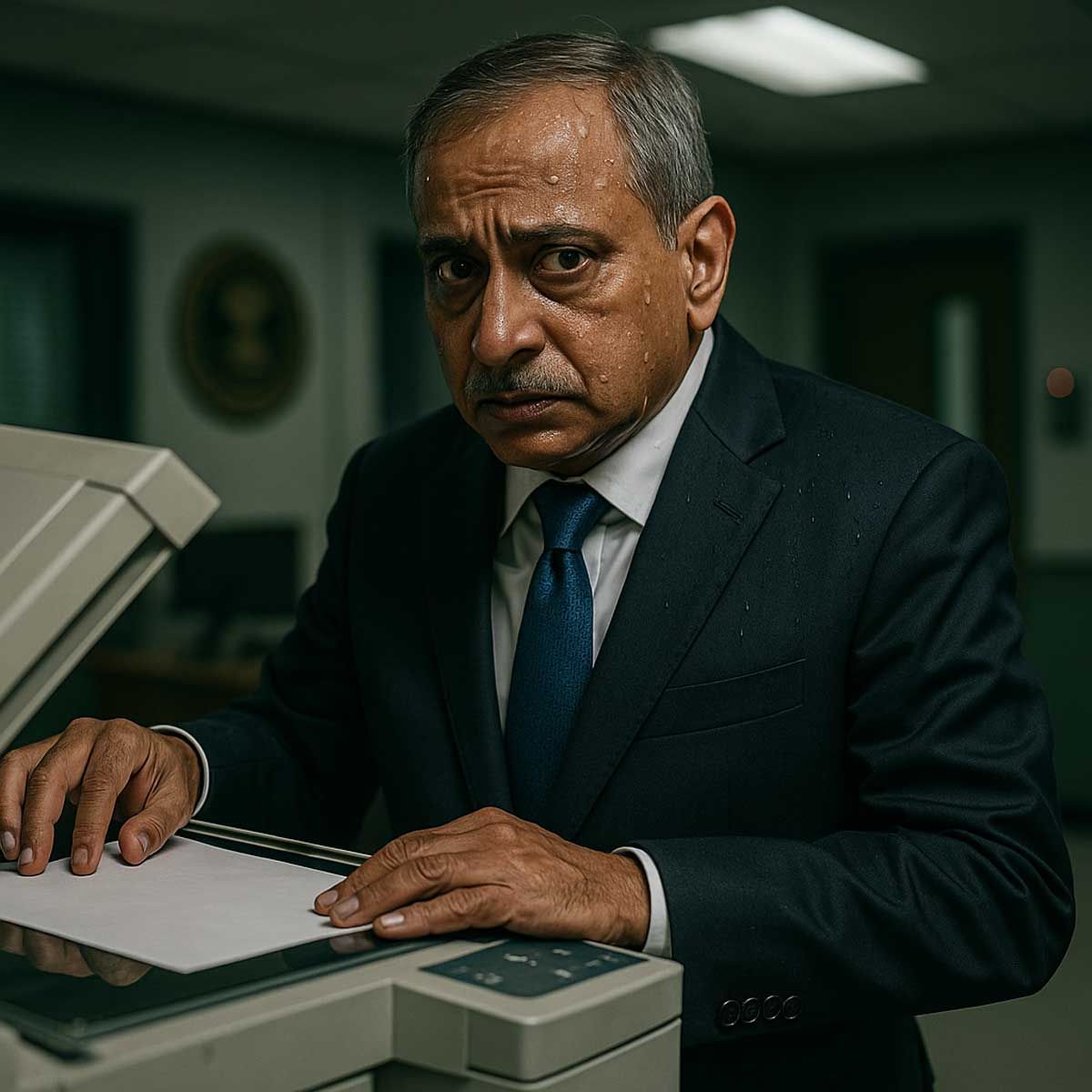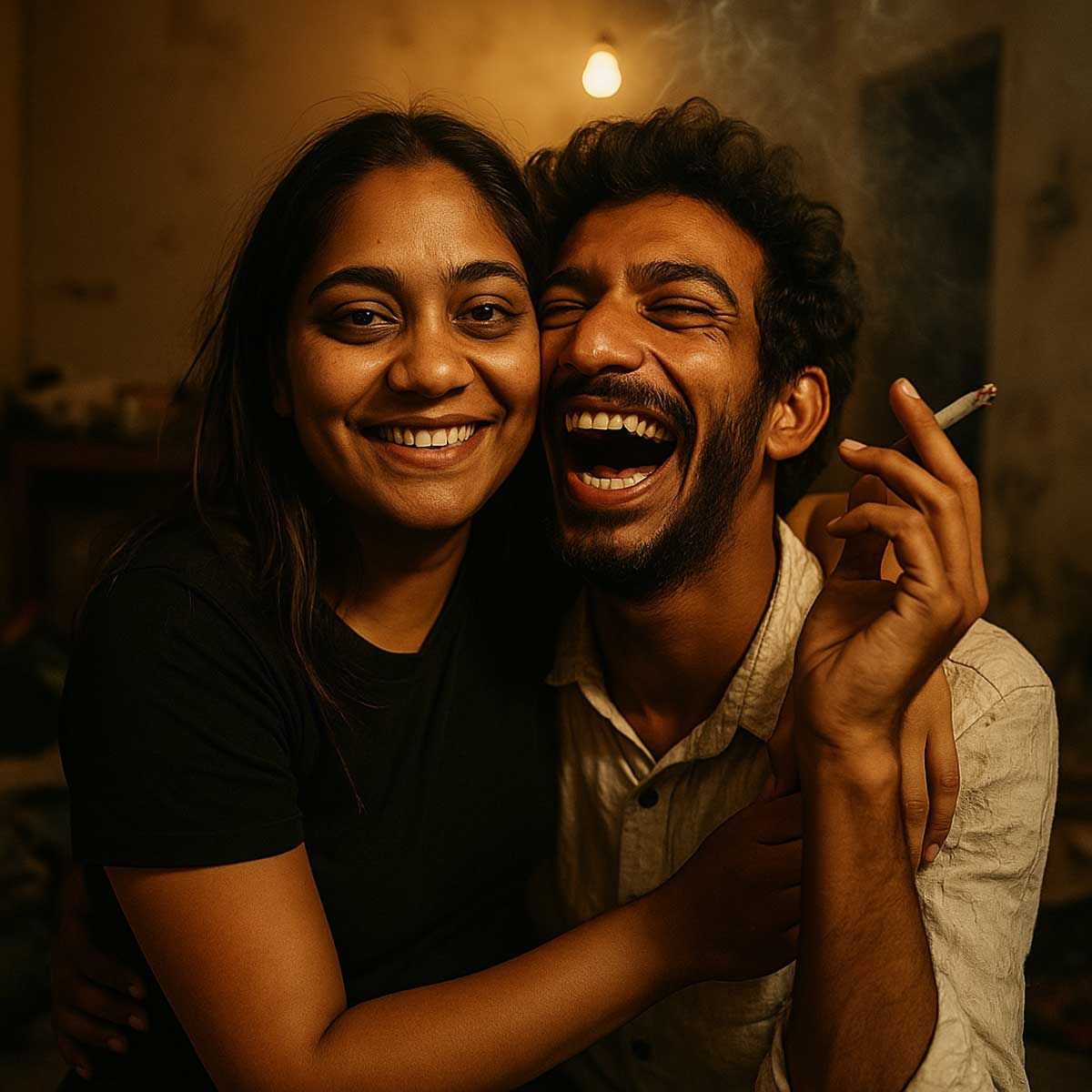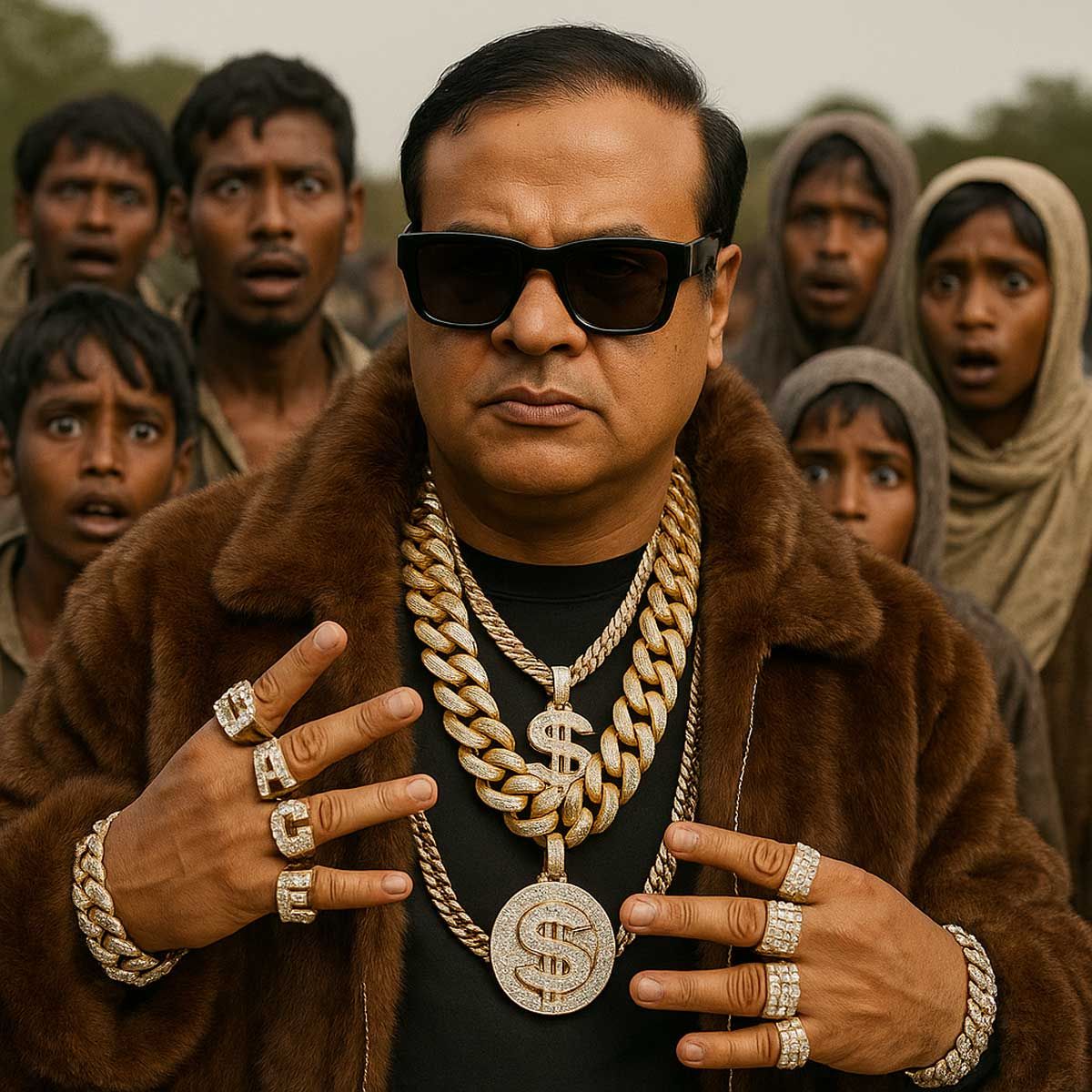More Coverage
Twitter Coverage
Satyaagrah
Written on
Satyaagrah
Written on
Satyaagrah
Written on
Satyaagrah
Written on
Satyaagrah
Written on
JOIN SATYAAGRAH SOCIAL MEDIA
"अब बस, है तो है": In Bandal Village, Bangladesh, 25 Hindu families face severe hardships & isolation as Sohail Hazra builds a house on their only road, blocking emergency medical access & threatening their safety, leaving the community in a state of fear
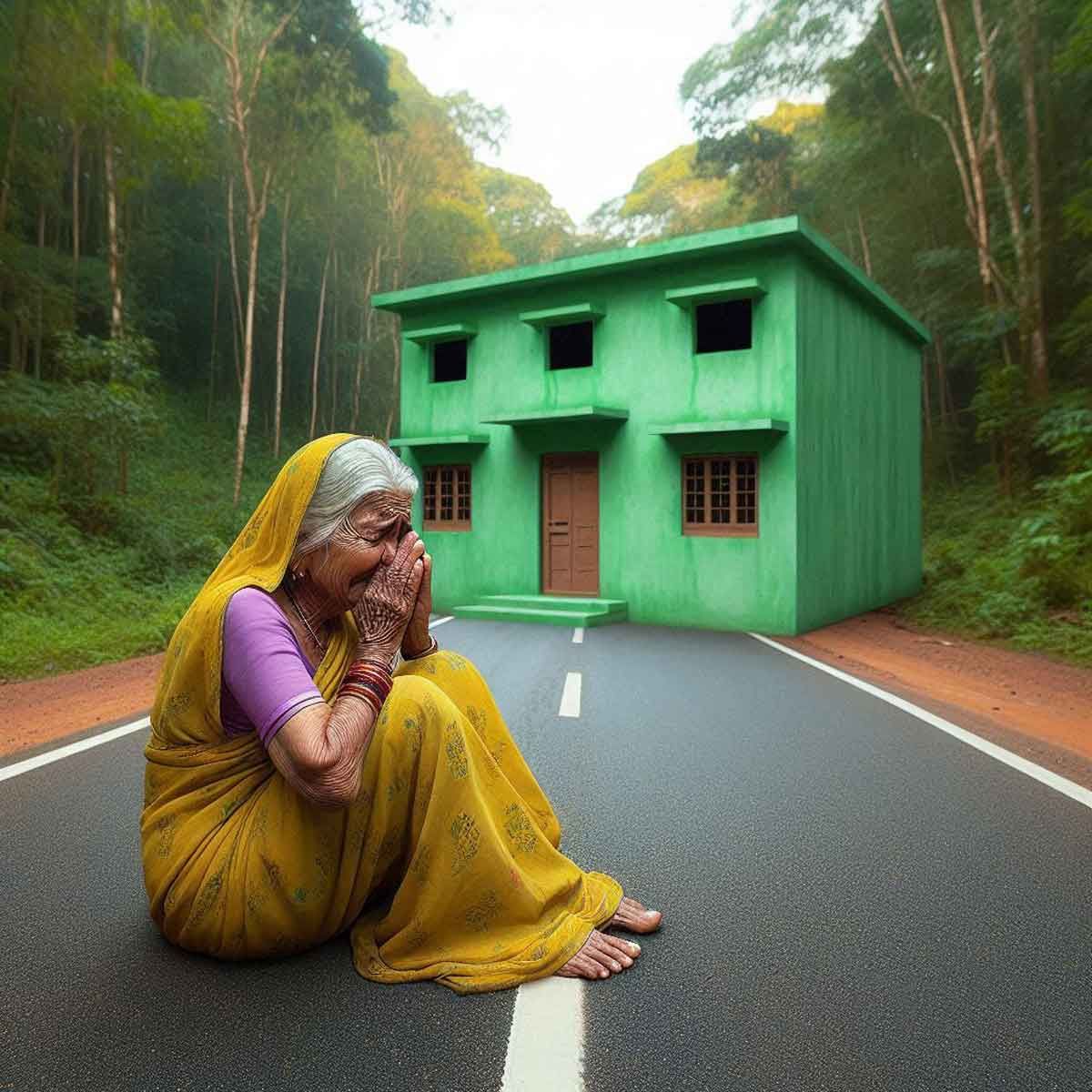
In a deeply troubling development from Bangladesh, a distressing scenario has unfolded for 25 Hindu families in a small village. These families now find themselves in a precarious situation due to the actions of a local individual. In the heart of Bandal village located in the Kotalipara upazila of the Gopalganj district, a startling overnight construction has dramatically altered the lives of these residents.
|
The center of this controversy is Sohail Hazra, a man described by locals as a thug, who audaciously built his house directly on an existing road. This road, a kuccha (unpaved) path, has been a vital part of the Hindu community for over half a century, facilitating their day-to-day activities and connecting them with the broader area.
This act has effectively immobilized the residents, cutting off their main access route and leaving them isolated from essential services. The gravity of the situation was captured poignantly by Jyotsna Karmakar, a resident of the village. She expressed her despair, highlighting the severe impact on their daily lives: “We are unable to step out of our homes because he built the house on the road.”
The implications of such an action are severe, particularly in emergency situations where access to medical facilities or other critical services is needed. The act of building a house in the middle of the road not only disrupts the physical movement but also sends a strong message of intimidation and disregard for the rights of these families, deepening the sense of vulnerability among the Hindu community in the area.
As the distress in Bandal village deepens, the details emerging from the affected Hindu families paint a troubling picture of their plight. One Hindu man revealed the shocking developments concerning his land that were catalyzed by the controversial actions of Sohail Hazra. "We have a land there. He ploughed it overnight and built the house," he explained. This startling action shows the abruptness and audacity with which Sohail imposed his will, altering the landscape without warning or consent.
The sense of disbelief and dismay was echoed by an elderly woman from the community who reminisced about the historical significance of the now-blocked road. "We did not even have a fight. We know nothing when he pulled it off. The road has been there since the time of the Britishers. We saw it as children," she said. Her words reflect a deep-seated connection to the land and the road, a link that stretches back generations, long before the independence of Bangladesh, when the region was still under British rule.
The response from Sohail Hazra to the objections raised by the Hindu families was far from conciliatory. Instead, it escalated to threats of physical violence, further intimidating the already vulnerable community. "After the Hindu families objected to the blockade, the influential local goon Sohail Hazra threatened them with physical harm," underscores the gravity of their situation. This threat has cast a shadow of fear over the entire Hindu community in Bandal village, disrupting their sense of security and daily life.
The practical implications of this blockade are severe, particularly in terms of accessing emergency medical services. A Hindu man poignantly highlighted the dire circumstances they are forced to navigate: "The situation is so grim now that we cannot take anyone to the hospital in case of an emergency. We will have to carry the patient on our shoulders," he emphasized. This statement not only underscores the physical barriers imposed by the blockade but also the emotional and psychological toll on the residents, who feel abandoned and helpless in critical times.
Furthermore, the man stressed the communal ownership of the land, challenging Sohail's unilateral claim to it. "This is the condition of the road. He (Sohail) and I both have our land here. This does not belong to him alone," he added. His words are a declaration of rightful ownership and a plea for recognition of shared rights and communal space that has been unilaterally usurped.
One local voiced a grim reality that many are facing: “We do not have an alternate road available for commute. If the road is not freed of the encroachment, then, we will have to stay under house arrest.” This statement underscores the severity of the situation, highlighting how the community feels trapped, with their normal routines and freedoms severely restricted.
Further incidents of intimidation add to the tense atmosphere. The same local shared a disturbing encounter with Sohail Hazra and his group, illustrating the hostile environment that now prevails. "He informed that Sohail Hazra and his men intimidated him with sharp weapons upon being caught red-handed building the illegal house." This confrontation indicates the lengths to which Sohail is willing to go to assert his dominance and control over the area, using fear and violence as tools to suppress any opposition.
The detrimental impact on the community is palpable, with residents feeling the strain of the disrupted social harmony. One woman expressed her despair over the changes brought about by Sohail’s actions, which have gone beyond physical barriers to affecting the community spirit. "One woman lamented how Sohail destroyed their area and created problems for the community." Her words reflect a deep sense of loss and frustration, as the actions of one individual and his supporters have led to widespread disruption and a deteriorating sense of community and safety.
The ongoing crisis in Bandal village calls for urgent attention and resolution. The encroachment on their road has not only limited physical movement but has also instilled a climate of intimidation and fear, affecting the psychological well-being of the residents. The community’s outcry for help and restoration of their rights is a stark reminder of the challenges minority communities can face, and the urgent need for authorities to step in and address such injustices.
Sohail Hazra shamelessly justifies action, Hindus get consolation prize
Sohail Hazra, the man at the center of the dispute, defended his actions amid growing criticism and outrage. Hazra claimed ownership of the plot in question, asserting his right to build on it despite the communal repercussions. "The accused, on the other hand, has cried foul over the matter and alleged that he is the owner of the land on which the house has been built."
In response to the urgent pleas of the affected Hindu families, local authorities intervened in an attempt to mediate the escalating tension. Officials arrived on the scene hoping to forge a compromise that would alleviate the immediate hardship faced by the community. "Following complaints to the local administration by the stranded Hindu families, the authorities reached the spot and tried to strike a settlement between both parties." However, the solution offered by the authorities did not fully resolve the situation.
The compromise, referred to somewhat ironically as a "consolation prize," involved the creation of a narrow passage that would allow for limited movement through the area. "As a consolation prize, a narrow passage was provided for the movement of the locals." While this gesture provided some relief, it fell short of addressing the fundamental issue of the road blockade and the usurpation of communal space by Hazra.
Despite the intervention and the partial alleviation of the blockade, the core of the problem remains unresolved. "The land encroachment and the temporary house, built by Sohail Hazra overnight, continue to remain intact." This outcome leaves the Hindu families in a state of limbo, with their daily routines still significantly disrupted and the threat of conflict lingering. The makeshift solution underscores the ongoing challenges in dealing with land rights disputes, especially when they intersect with communal tensions and claims of historical ownership.
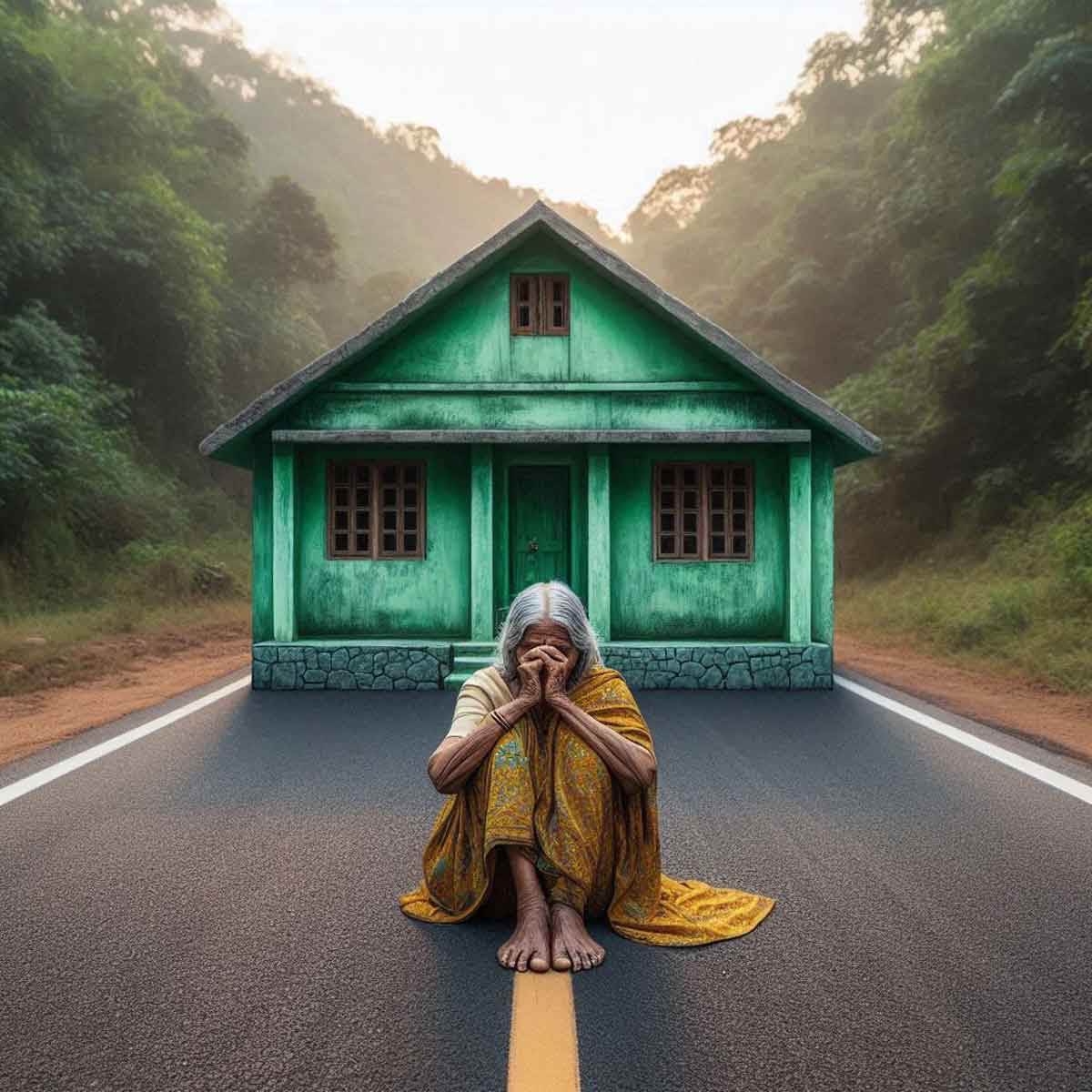 |
 Support Us
Support Us
Satyagraha was born from the heart of our land, with an undying aim to unveil the true essence of Bharat. It seeks to illuminate the hidden tales of our valiant freedom fighters and the rich chronicles that haven't yet sung their complete melody in the mainstream.
While platforms like NDTV and 'The Wire' effortlessly garner funds under the banner of safeguarding democracy, we at Satyagraha walk a different path. Our strength and resonance come from you. In this journey to weave a stronger Bharat, every little contribution amplifies our voice. Let's come together, contribute as you can, and champion the true spirit of our nation.
 |  |  |
| ICICI Bank of Satyaagrah | Razorpay Bank of Satyaagrah | PayPal Bank of Satyaagrah - For International Payments |
If all above doesn't work, then try the LINK below:
Please share the article on other platforms
DISCLAIMER: The author is solely responsible for the views expressed in this article. The author carries the responsibility for citing and/or licensing of images utilized within the text. The website also frequently uses non-commercial images for representational purposes only in line with the article. We are not responsible for the authenticity of such images. If some images have a copyright issue, we request the person/entity to contact us at This email address is being protected from spambots. You need JavaScript enabled to view it. and we will take the necessary actions to resolve the issue.
Related Articles
- “We are preaching hope, standing on the piles of bones of the past”: Fall in Bangladesh’s Hindu population confirms their genocide, total population of the country has more than doubled over 50 years, but that of Hindus has dropped by around 7.5 million
- Under a well-articulated attack, over 200 Hindu women were raped and tortured by Muslim men in Bangladesh: HM Amit Shah during CAA bill in 2019 mentioned Bhola violence that had broken the backbone of minority communities
- Despite immense sacrifice by Hindu community in the liberation war they are subjugated denominations in the country. Bangladesh seized 26 lakh acres of land from Hindus under black law of “Enemy Property Act”
- "हाहाकार": Amid ongoing persecution, Hindu youth Sudeb Halder hacked to death, activists say he was murdered for being Hindu; 205 temple attacked, idols vandalized, ISKCON suppressed, blasphemy charges target Hindus under Yunus's interim rule
- "When life gets hard, try to remember: the life you complain about is only a dream to some people": Islamists forcefully occupied houses of Santal Hindu community in Dinajpur of Bangladesh and forced them to spend their days in other people’s backyards
- Muslim-owned restaurant's Hotel Manager Manzoor Ahmed despite clear instructions served beef to Hindu customers Supan Pal and his 12 friends celebrating a birthday party, arrested: Bangladesh
- "श्रापित देश": In Khulna, Bangladesh, Hindu boy Utsab Mandal killed by a Muslim mob over blasphemy accusations, with army and police present, confirmed dead by a mosque mic asking the mob to go home, local media deleted reports after video went viral
- "Whispers of death": In October 1990, 26 months before Karseva, Bangladeshi media spread a rumor that the disputed Babri structure had been demolished in India. The aftermath? 3,500 temples razed, and 2,400 Hindu women brutally raped
- "मेरा मुल्क, मेरा देश, मेरा ये वतन": In Tanti Bazar, Bangladesh, Mohammed Hridoy, and Mohammed Jibon attacked a Durga Puja mandap with a petrol bomb, stabbing devotees when stopped, as Bijoy Shah clarified the attack and robbery were separate incidents
- The eighth exodus of Kashmiri Hindus begins: With fear gripping the valley due to increased targeted killings of Hindus by Islamic terrorists, Hindu govt employees decide to leave the valley en masse
- Selective Case filed against Hindu Yati Narasimhanand, Sagar Sindhuraj and SIT constituted to investigate alleged hate speech at Haridwar Dharma Sansad
- "चंद्रावतंसो जटिलस्त्रिणेत्रो भस्मपाण्डरः": “Who is he to ban Vibhuti”, students protested against a teacher who threatened them to not wear sacred thread & Vibhuti, in other instance Christian school student were beaten & told rowdies for wearing Vibhuti
- 'Enough of Siva, Parvati and Sri Krishna - 3,000 years of that and where’s that got us— slavery, poverty': Another gem from Nehru
- Jo Chopra, an NGO Director misled about Christmas being banned in Uttarakhand to malign Hindutva, apologizes after being called out
- Delhi University professor Dr Ratan Lal booked for making vile derogatory statements on Shivling discovered inside disputed Gyanvapi structure, which came to light during the Court-ordered survey















